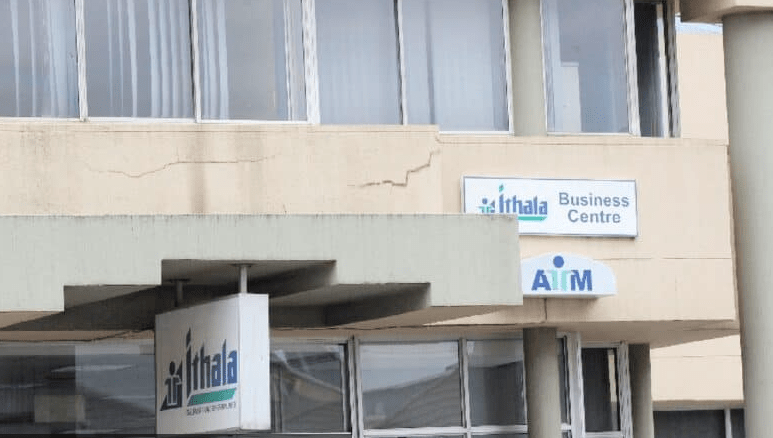Ithala SOC, a state-owned bank in KwaZulu-Natal, is facing a financial crisis that threatens the livelihoods of thousands of people in the region. The bank has R300 million ring-fenced in the provincial revenue fund that can be used to secure deposits, as required by the South African Reserve Bank’s Prudential Authority. However, this money has not been advanced to the bank yet, so it is not reflected in Ithala’s balance sheet.
The bank was scheduled to appear in court to challenge legal instructions from the Repayment Administrator of the Prudential Authority, Johannes Kruger, which have frozen all activity on Ithala’s accounts. This has made it impossible for the bank to operate, resulting in employees not receiving their January salaries and government employees not being able to access their paid salaries. The situation has created uncertainty for Sassa beneficiaries who depend on Ithala for financial services.
KZN finance MEC Francois Rodgers has called for urgent intervention in the matter, highlighting the impact on thousands of people in KwaZulu-Natal. The bank is set to oppose an application for provisional liquidation by the Prudential Authority, which could lead to the closure of 257,000 depositors’ accounts and the loss of 400 jobs.
Ithala is seeking a transferee bank to continue its operations and has played a vital role in providing development finance to small and medium enterprises in rural areas. Its collapse would have devastating consequences for its clients and undermine KwaZulu-Natal’s developmental agenda.
The Prudential Authority claims that Ithala is technically and legally insolvent, but the bank disputes this, stating that its assets exceed its liabilities by R316 million. The bank’s liquidity position is also reportedly stable, with approximately R250 million in cash and bank balances, and R400 million in liquid assets.
The legal battle between Ithala and the Prudential Authority has raised concerns about the impartiality of Johannes Kruger, who has been accused of overstepping his mandate and using his law firm in litigation against the bank. Despite the challenges facing Ithala, the bank remains determined to continue its operations and serve the people of KwaZulu-Natal. Ithala’s loan book is predominantly secured by an underlying asset, with 99% of the loans backed by assets such as home finance. This means that the risk of default is minimized as the loans are secured against tangible assets. However, this also means that the majority of Ithala’s assets are tied up in these loans, making it difficult for the company to immediately repay all customer deposits.
According to Coetzee, the customer deposit balance currently stands at R2.4 billion. While this may seem like a large sum, it is not uncommon for banks to have an asset/liability mismatch, where the assets are not immediately liquid enough to cover all liabilities. Despite this, Coetzee reassured that Ithala exceeds the liquidity requirements set out in the Banks Act and the additional requirements imposed by the Prudential Authority.
However, there have been concerns raised about the governance and operations of Ithala by the appointed Repayment Administrator. Coetzee argues that the decisions and directives issued by the Prudential Authority and the Repayment Administrator have put Ithala’s clients’ funds at risk. This has resulted in clients, including Sassa grant beneficiaries, being unable to access their accounts or banking services, which has far-reaching consequences for their dependents, as well as Ithala’s employees and service providers who are left without funding.
The refusal to pay the salaries of Ithala employees by the Repayment Administrator could also have detrimental effects. Coetzee emphasizes the importance of keeping Ithala intact to facilitate the transfer of deposits as planned by the provincial and national government.
In conclusion, while Ithala’s loan book is largely secured by underlying assets, there are concerns about the governance and operations of the company. It is crucial to address these issues to ensure the safety of clients’ funds and the continuity of banking services for all stakeholders involved.








